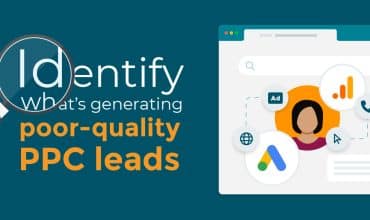Call tracking and speech analysis: Using data to understand your customers and your campaigns
Knowing your customers is key. This isn’t just for marketing success but can be make or break for your overall business. In fact, research by PwC revealed that 65% of people would be long-term customers of a brand, if they can provide positive experiences throughout the customer journey. And, this sort of customer loyalty is exactly what many businesses are after.
So, what does this mean for marketing teams? It means understanding what is happening at each and every touchpoint in the journey, and then using this data to improve your campaigns.
This is where we look at data. Many marketers have a variety of tools in their arsenal to understand some aspects of the customer journey including:
- What keywords have the highest search volume
- What landing pages are getting the most traffic
- Which PPC campaign has the best click through rate
But, can these really provide the complete picture? This is where extracting data from your inbound calls can help you step above the competition, here’s how…
Making the most out of your inbound calls
In virtually all sectors, the phone is still a go to for prospects when they are doing their research. In fact a survey from Moneypenny found that businesses now receive 34% more calls on average than they did five years ago.
By not making the most out of these calls, marketers will be missing out on insights that could shape campaigns going forward. The best way to understand what your customers want, is to listen to them and this is where tracking your calls comes in.
How does call tracking work?
Call tracking has become a vital tool for marketers hungry for data on which campaign and channels are driving inbound telephone calls.
By using multiple telephone numbers, assigned to different channels or campaigns, every prospect’s journey can be understood from start. This way you can see how each prospect is engaging with your campaigns.
It also shows calls to each number used, so you can see the leads and the revenue, helping you determine not just lead quantity, but quality.
Understanding marketing performance
The data you get from your calls can help you understand and improve on almost all your marketing channels and campaigns. Here are just a few examples:
- Organic search: By tracking your calls, you can understand what your customers are calling about and what questions they are asking. So, you can then use this to optimise your site visibility, improve your search rankings, and address customer concerns in your content.
- PPC: With call tracking you can see which PPC campaigns are driving calls, not just generating leads. So, you can optimise based on revenue not just clicks. But you can do more than that, by understanding how your customers are searching you can make sure you’re bidding on the right keywords, and at the right times too.
- Local SEO: Google Business Profile is often a source of your inbound calls and call tracking can attribute these to their source. This shows you the results being delivered by both local and organic search.
But the value of call tracking goes far beyond these examples. It provides you with detailed customer insights which are key to understanding what really matters to them, how they search, and what impacts their final buying decision.
Speech analytics: A new way to do keyword research
Keyword research isn’t new. Many marketing teams (not just search marketers) use it to understand their customers, what they are searching for, and the questions they are asking.
But, many of the tools available to marketers don’t always tell you what people are searching for to actually find you, or what words they are using to describe your products. This is where our call tracking software with speech analytics comes in. But how does this work and what are the benefits?
How it works
Our speech analytics technology records and transcribes your calls, without you needing to do anything.
You can then search and analyse this data to see which words and phrases are cropping up time and time again. So, you can understand the language your customers are using and the questions they are asking.
Not only can this insight help you determine the focus of your activities, you can use it to build a ‘dictionary’ of keywords that drive results – and those that don’t.
Using this data to maximise budgets:
Once you know what keywords are coming up in calls you can use this to really maximise your budgets by:
- Allocating extra budget against to the keywords that are driving calls and calls that convert (which you can’t always see in Google if the data isn’t ‘significant’ enough).
- Reducing or removing budget on the terms that are delivering clicks which don’t produce leads or sales or produce irrelevant enquiries. You can also add these into a negative keyword list in Google Ads.
- Monitoring the days and times of your inbound calls, allowing you to optimise spend for the most profitable times.
- Segmenting calls according to their keywords. By doing this, you can see if certain keywords are driving a high volume of customer service calls. You can then remove these from your PPC list, but prioritise them from an organic perspective.
- Creating custom audiences for prospects who have looked at particular pages, features, products, or services, so you can effectively retarget them with relevant content.
Speech analytics doesn’t just help from a paid perspective. You can also use the questions or topics that come up often as part of your organic content creation.
Get a competitive advantage with call tracking and speech analysis
Web analytics tools alone aren’t enough anymore to provide the level of detail you need on your campaigns to understand what is working, and what isn’t.
The companies that invest in call tracking to understand and analyse the sources and content of their inbound calls are the ones who will have a competitive edge, as they’ll have the customer insights they need to maximise their campaigns and their future budgets.

Book a demo with a Mediahawk expert and we’ll show you how speech analytics can support your business objectives.



